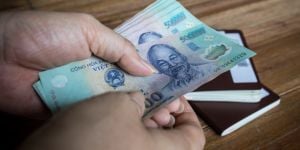ATM withdrawal limits with a local bank account and bank card
Make your relocation easier with the Vietnam expat guide

Opening a bank account in Vietnam
If you have decided to settle in Vietnam, you will definitely need to open a bank account. Not only will this be ...

Dating in Vietnam
If you're single and ready to mingle, this article will help you understand the dos and don'ts of dating ...

International schools in Vietnam
Many families moving to Vietnam are curious about the quality of education available to their children. This ...

Phones and Internet in Vietnam
The telecommunications sector in Vietnam has flourished throughout the past two decades, and just like the rest of ...

Moving to Vietnam with your family
If you are moving to Vietnam with young children, you might be looking for a safe and nurturing place to look ...

Working in Hoi An
Hoi An is a bustling tourism hub and might be a calling to expats seeking the joys of fresh connections or ...

Moving to Vietnam with your pet
If you are planning to move to Vietnam with a pet, here are the key areas to focus on, including your pet's ...

Sports activities in Hanoi
We know there's a lot of attention on the drinking culture in Hanoi, but what about the options for a healthy ...







